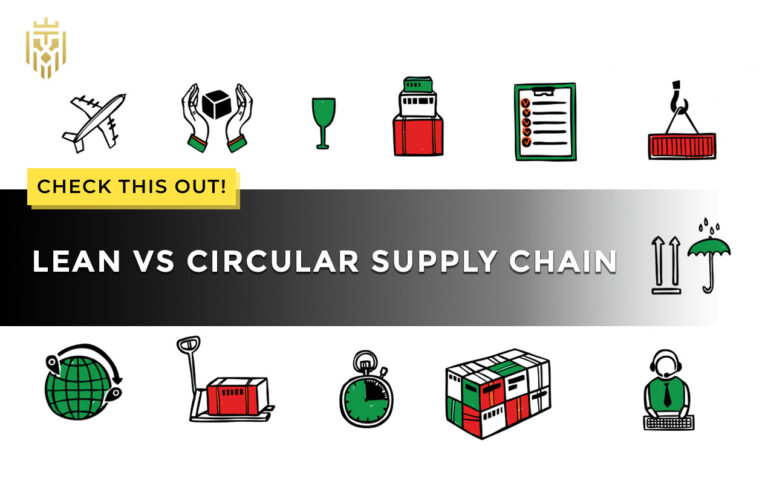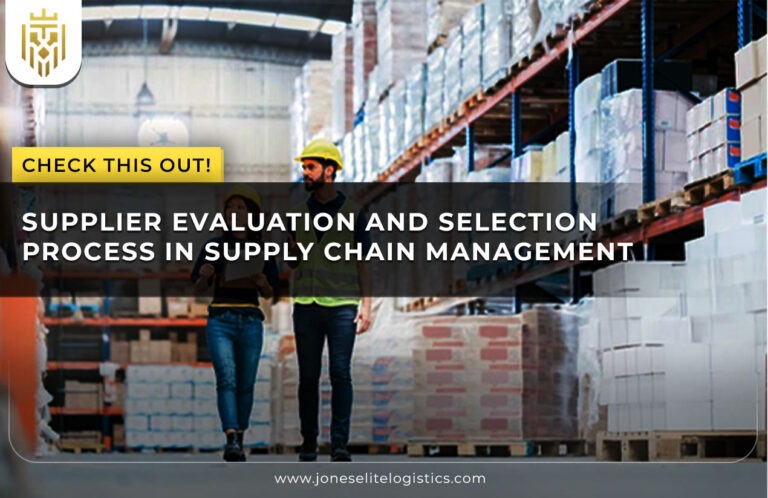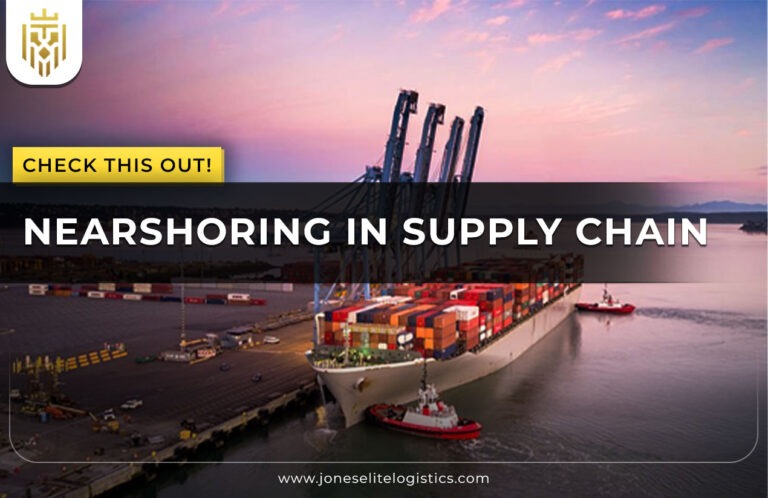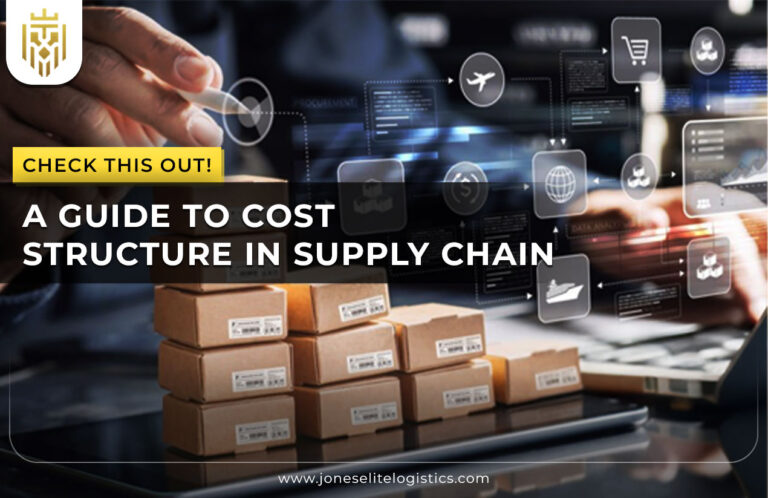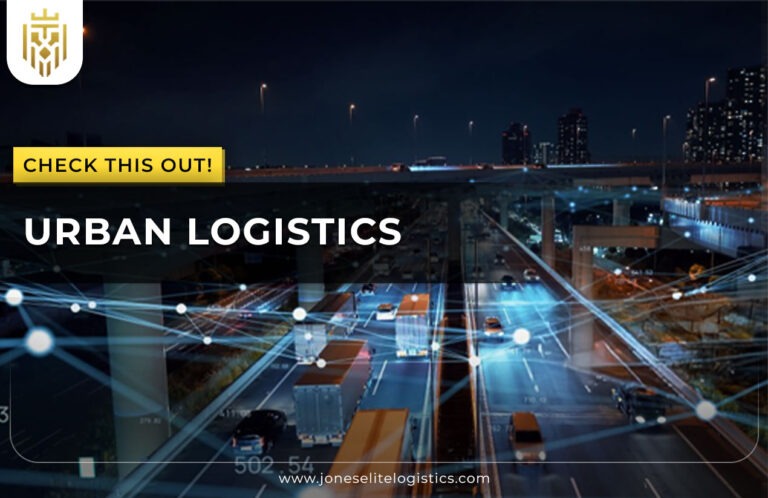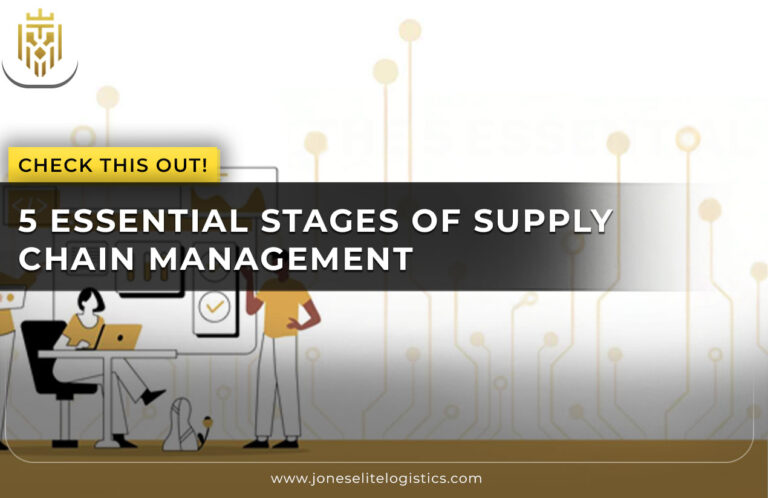What is 4PL Logistics?
Fourth Party Logistics (4PL) means a strategic outsourcing model in logistic management when a company provides every single supply chain operation to an outsourced logistic specialist which is called the 4PL. While third-party logistics (3PLs) providers provide several specific logistics tasks such as transportation and warehousing, 4PLs offer strategic oversight, acting as a single point for handling several 3PLs and specific logistics functions to create streamlined supply chains. They also leverage advanced technology to enhance efficiency and improve overall customer service. Additionally, 4PL integrates transportation management with inventory management to optimize the entire logistics operation for improved order fulfillment and reduced shipping costs.
Components of 4PL:
It comprises the strategic planning needed to align supply chain solutions with business goals, incorporating technology integration for real-time visibility, supplier management to enhance performance, and data-driven insights for optimizing the logistics process. This enables businesses to achieve efficiency in operations and maintain control over complex logistics models while focusing on their core competency. Moreover, a reliable 4PL acts as a strategic partner, providing a unified solution to manage inventory levels and improve customer satisfaction.
Control Room:
The control room is set as a central command point for overseeing real-time logistics operations and supply chain management. It enables preventive measures and quick reactions to disturbances, ensuring smooth functioning and addressing the customer’s needs efficiently. With a 4PL service, companies can leverage advanced technology to ensure better visibility, faster fulfillment, and seamless coordination between multiple 3PLs and other partners.
Resource Provider:
A 4PL serves as a focal point, acquiring, negotiating, and overseeing different logistics service providers. This leads to efficient use of client resources, better organization, and cost optimization. Acting as a single point of contact, 4PL ensures streamlined logistics operations by consolidating reverse logistics and other specific logistics functions, enabling businesses to achieve significant cost savings.
Information:
Using modern technology integration and innovative analytics, a 4PL offers crucial performance analysis for supply chains. This helps optimize inventory levels and improve the logistics strategy, ensuring seamless order fulfillment. Such strategic insight empowers businesses to adapt to changing market conditions and make informed decisions for enhanced efficiency and customer satisfaction.
Importance of 4PL in Logistics Industry:
4PL logistics has a strategic planning role in improving efficiency and flexibility in intricate supply chains. This allows businesses to optimize their logistics functions and focus on their core competency while enhancing global effectiveness. By acting as a strategic partner, 4PL ensures that every logistics task aligns with the company’s objectives. Furthermore, advanced technology and transportation management help streamline order fulfillment and minimize disruptions in the logistics process.
How does 4PL work?
4PL logistics operates by outsourcing and integrating all 3PLs and supply chain functions into one cohesive system. Acting as a central coordinator, it manages inventory, transportation, and warehousing efficiently. The use of strategic oversight ensures smooth operations from procurement to final delivery. Moreover, a 4PL leverages technology integration and analytics to optimize the supply chain and adapt to evolving market conditions, ensuring effective order fulfillment.
Transportation:
4PL performs the management of transportation by choosing carriers, planning the transportation path, and controlling the freight flows. This includes setting transport prices, tracking consignments in real-time, and adhering to regulations. By implementing transportation management solutions, 4PL enhances efficiency and reduces shipping costs while improving customer satisfaction.
Warehousing:
4PL handles warehousing by managing packaging, labeling, and documentation. It also oversees the movement of goods from warehouses to distribution centers or directly to customers. This approach reduces transit times and costs, improving order fulfillment and maintaining optimal inventory levels to meet customer demands.
Shipping:
Through optimized inventory management, 4PL logistics ensures stock availability and timely order fulfillment. By monitoring inventory in real-time, 4PL minimizes stockouts and enhances the overall logistics process. Efficient shipping strategies help businesses reduce delays, leading to better customer satisfaction and streamlined logistics operations.
Inventory Management:
4PL manages vendor performance, pricing, and service quality, ensuring all logistics providers meet acceptable standards. With robust inventory management processes, businesses can balance supply and demand effectively. This leads to optimized inventory levels, increased efficiency, and improved transportation and order fulfillment.
Benefits Of 4PL:
4PL offers several benefits that makes it easier for companies to dispatch products on-time and in perfect comdition. They include:
Smooth Vendor Management:
4PL consolidates and manages logistics tasks, such as transportation, storage, and inventory management, in one location. This enhances efficiency, reduces shipping costs, and ensures effective coordination between multiple third party logistics services. Acting as a single point of contact, 4PL simplifies the logistics process for businesses.
Optimization of Supply Chain Solutions:
Logistics management with the help of 4PL enhances customer satisfaction by improving order fulfillment and shipment tracking. Its ability to provide tailored logistics solutions ensures seamless operations and reliable performance in even the most complex supply chain setups. These solutions also help reduce delays and enhance the integration of transportation management systems, resulting in increased overall logistics efficiency. Furthermore, 4PL providers use data-driven insights to optimize supply chain processes continuously and adapt to evolving market demands.
Improved Customer Services:
4PL integrates strategic guidance into its services, enabling businesses to address customer needs efficiently. Quick and accurate order fulfillment and prompt handling of queries lead to improved customer satisfaction and better service quality. Additionally, real-time tracking and updates offered by 4PL providers enhance customer trust and transparency in the logistics process, ensuring better retention and loyalty. This focus on proactive solutions helps businesses stand out in a competitive market.
Scalability and Flexibility:
4PL logistics offers scalable solutions to accommodate growth and evolving business needs. With its expertise in inventory management, transportation, and order fulfillment, 4PL helps businesses adapt to changes in market conditions while maintaining efficiency. Employing advanced technology and efficient logistics services enable organizations to deliver what customers demand in terms of timely delivery, order integrity, and exemplary services.
Single point of contact:
4PL serves as a central hub, managing all aspects of the supply chain. This eliminates the need for managing multiple 3PLs and ensures a seamless logistics operation. The integration of technology further enhances coordination and cost savings. Additionally, 4PL acts as a reliable strategic partner, simplifying communication and reducing the risk of errors in complex supply chain solutions. Businesses can rely on a single, cohesive system to address all their logistics needs, boosting efficiency and productivity.
Challenges of 4PL:
Although 4PL entails several advantages, it also involves several issues that companies must overcome to make the service effective and efficient to incorporate and run.
Limited Control Over the Logistics Process:
Outsourcing all supply chain functions to a 4PL may reduce visibility and control over individual logistics tasks. However, leveraging strategic oversight and advanced analytics can help mitigate this concern and ensure smooth order fulfillment. Companies can also establish regular communication channels with their 4PL provider to maintain a level of oversight and align operational goals. This collaborative approach ensures that business objectives are consistently met without compromising control.
Limited Internal Capacity:
The high dependence on a 4PL also contributes to the weakening of a company’s internal logistics capacity. As time goes by, the firm may lack the personnel with the right qualifications to handle the logistics on its own; this can prove to be inconvenient more so if the relationship with the 4PL provider is severed. Firms must ensure a balance by maintaining some control over inventory management and logistics operations while allowing 4PL to handle specific logistics functions effectively. Regular performance reviews and knowledge sharing between the company and 4PL provider can help mitigate this risk, ensuring both parties contribute to achieving long-term operational goals.
Reduced Control:
Hiring a 4PL logistics provider might result in reduced oversight of logistics processes. Companies should focus on selecting a strategic partner that offers transparency and reliability to ensure seamless fulfillment and high customer satisfaction. Establishing clear service level agreements (SLAs) and performance metrics can help maintain accountability and ensure the logistics operations align with the company’s vision and objectives.
Integration Challenges:
Integrating a 4PL into existing systems can be challenging, particularly in terms of data transfer and collaboration. Proper planning and technology integration are crucial for ensuring efficient order fulfillment and overall logistics solutions. Businesses can overcome these challenges by investing in compatible software solutions and fostering strong communication between teams. Such preparation ensures a smoother transition and minimizes disruptions in supply chain activities.
How to choose a 4PL Provider?
When selecting a 4PL provider, businesses should evaluate their expertise, technological capabilities, and adaptability. A good fourth party logistics provider ensures strategic insight, seamless inventory management, and efficient order fulfillment. Additionally, it is crucial to assess their track record in managing complex supply chain networks and their ability to scale operations. At Jones Elite Logistics, we deliver customized logistics solutions tailored to your needs, providing a reliable strategic partner for your logistics operations. With our dedication to professionalism and the satisfaction of our clients, we believe we are the perfect partner for every logistics.
FAQs
1) What is 4PL?
4PL is a logistics model where a corporation outsources all logistics functions, including managing multiple third party logistics, to a fourth-party logistics provider offering strategic planning and centralized management.
2) What are the advantages of 4PL?
4PL centralizes vendor management, enhances efficiency, improves customer satisfaction, and focuses on a single point of responsibility for all supply chain processes.
3) What are the challenges of 4PL?
The drawback of 4PL is the fact that they do not control the logistics processes that are outsourced, there could be weak internal logistics skills, integration issues, and risk of losing control to the provider. However, partnering with a reliable 4PL mitigates these risks and ensures effective order fulfillment.
4) What is the importance of the 4PL in the Logistics Industry?
4PL service enhances efficiency, scalability, and versatility in managing complex supply chain networks, so that firms and companies can concentrate on their core capabilities and activities while reaping the advantages of effective logistics services.
5) How does a 4PL work?
A 4PL is attained by overseeing and operating numerous logistics functions and providers concurrently with the intention of sustaining the company’s supply chain by planning, technology, and research to realize the optimal supply chain throughout the procuring and delivery process.







